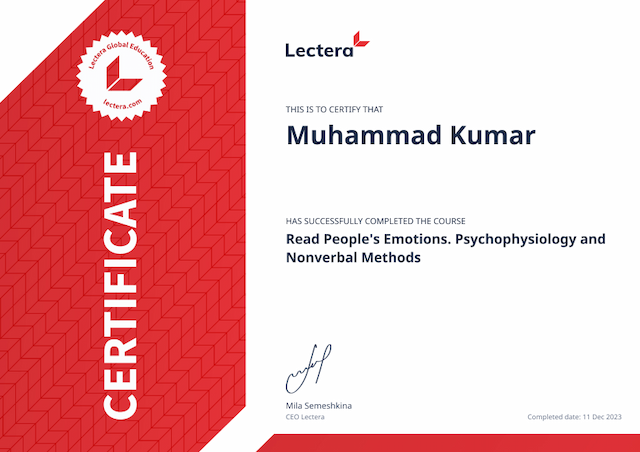A person who reads easily emotions and controls them can achieve far more than others can. Such people know exactly what they want and are highly aware of other people’s desires. And you can learn these skills. The course “The Influence of Emotions on Decision Making” will make you a professional in the field of perception in a short time.
Having understood the origin of emotions and how they influence your decision-making, it will be easier for you to constrain and control them. You will learn how to determine in a matter of seconds the emotional state of others, feel their desires, and read their minds.
You can do this with the help of profiling, the compass of motives, and understanding the specifics of different types of personality. The comprehensive development of emotional intelligence will open new horizons for the relationships with your loved ones and allow you to quickly build positive relationships with others.
